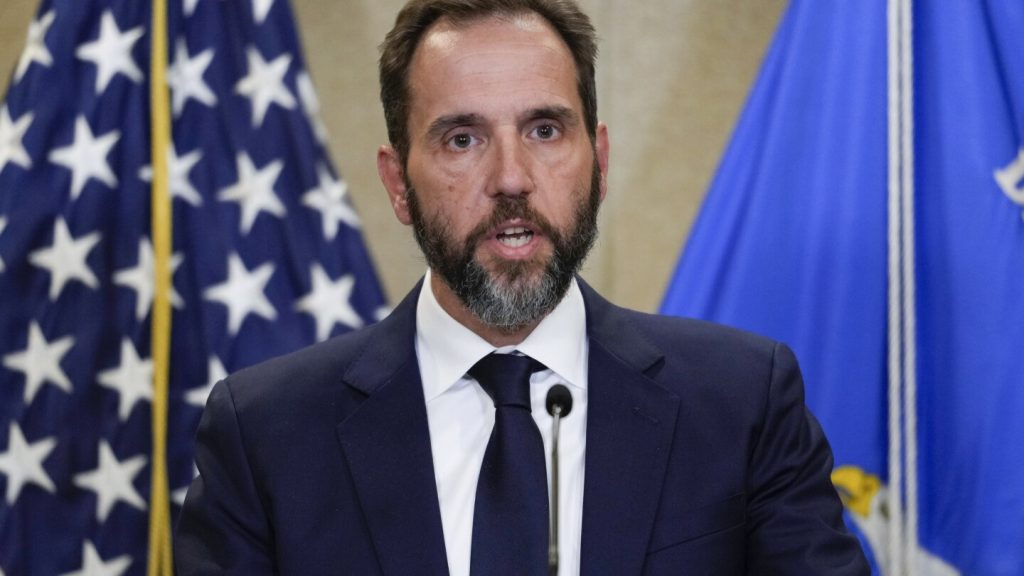Special counsel Jack Smith is evaluating how to wind down the federal cases against Donald Trump before he takes office, following Justice Department policy that sitting presidents cannot be prosecuted. Smith had charged Trump with plotting to overturn the 2020 election results and hoarding classified documents at Mar-a-Lago. With Trump’s election defeat, the Justice Department believes he can no longer face prosecution. Smith’s plans to end the cases would avoid a potential showdown with Trump, who had threatened to fire him once in office.
NBC News first reported Smith’s plans, which include two cases against Trump: one involving conspiracy to undo election results and the other for retaining classified records at Mar-a-Lago. The classification documents case had been dismissed by a Trump-appointed judge, but Smith has appealed to revive it. In the election interference case, Trump was scheduled to stand trial in March but his claims of immunity from prosecution delayed the case. The Supreme Court’s ruling granting presidents immunity complicated the case, prompting Smith’s team to lay out new evidence to move forward.
In New York, Trump faces a felony conviction for a hush money payment to Stormy Daniels before the 2016 election. He has been fighting the verdict and could use his new status as president-elect to seek to set aside or expunge the conviction. His lawyers are appealing after a bid to move the case to federal court was rejected. Judge Juan M. Merchan is set to rule on the case next Tuesday, with sentencing scheduled for November 26. Trump’s victory in the election raises questions about the ongoing cases against him in New York and Georgia, where he faces charges of plotting to subvert the state’s election in 2020.
Smith’s actions in winding down the cases against Trump before he takes office signal a resolution to the legal challenges facing the former president. The decision aligns with longstanding Justice Department policy on not prosecuting sitting presidents and avoids a potential confrontation with Trump. The cases against Trump, including conspiracy and retaining classified documents, had been stalled due to his claims of immunity. With Smith’s plans to withdraw the cases, Trump could enter the White House without the legal cloud of federal criminal prosecutions hanging over him.
Overall, the winding down of the federal cases against Trump highlights the complex legal landscape surrounding the former president as he prepares to take office again. Trump’s victory in the election presents new challenges and opportunities for him in facing ongoing legal battles, including a felony conviction in New York. The decisions made by special counsel Jack Smith to end the cases before Trump’s inauguration reflect the delicate balance between accountability and the legal protections afforded to a sitting president. As Trump navigates the legal system once more, the outcome of these cases could have significant implications for his presidency and the future of American politics.


